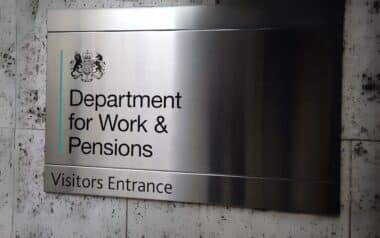A report has revealed the sharp economic disparity in Britain, where a London worker’s eight-month salary matches the annual earnings of an average employee in Burnley. This highlights the urgent need for structural reforms to bridge the country’s regional pay divide.
Economic Disparities: A Closer Look at Wage Inequality Across British Cities
The Cities Outlook report by the Centre for Cities paints a sobering picture of Britain’s economic inequality:
- Average annual wage in London: £49,455
- Average annual wage in Burnley: £29,508
- Percentage difference: 68%
- London wages compared to the national average: 24% higher
This vast gap underscores not just differences in pay, but also disparities in access to high-value, cutting-edge jobs.
| City | Average Annual Wage (£) | Difference from London (%) |
|---|---|---|
| London | 49,455 | — |
| Cambridge | 44,700 | -10 |
| Burnley | 29,508 | -68 |
| Huddersfield | 30,200 | -66 |
| Middlesbrough | 31,000 | -63 |
Cutting-Edge Jobs: A Privilege for the Few
According to the report, high-paying cities like London and Cambridge have:
- Twice as many cutting-edge companies as low-paying areas.
- Three times as many jobs in leading sectors, such as biotech and AI.
In contrast, towns like Burnley, Huddersfield, and Middlesbrough are locked out of these industries, perpetuating economic stagnation.
Andrew Carter, chief executive of the Centre for Cities, argued for focusing on advanced sectors: “The industrial strategy must prioritise growing the cutting edge of the economy and avoid calls to do something for all sectors and industries.”
Labour’s Strategy: Promises or Progress?
Keir Starmer’s Labour Party has pledged to reduce the stark inequality:
- Granting mayors sweeping powers to expedite large construction projects.
- Developing an industrial strategy to stimulate economic growth in underperforming regions.
Angela Rayner, the deputy prime minister, champions these efforts, which aim to transfer power to local authorities and drive targeted growth.
Yet questions remain:
- Will Labour’s plans address the root causes of regional inequality?
- Can local empowerment translate into substantial economic change?
The Hidden Cost of High Wages
While London wages soar, the benefits are undercut by soaring housing costs.
- Half of the 10 cities with the highest wages also have the least affordable housing.
- The report recommends reforming the national planning system to accelerate housing development in high-demand areas.
“Bold changes to planning rules can deliver more housing in the most expensive places and in our big cities, where it’s needed most,” said Carter.
Bridging the Divide: Strategies for Economic Growth and Regional Equity in Britain
Britain is one of Europe’s most regionally divided nations, with wide gaps in productivity and income. To tackle this:
- Urban centres must focus on advanced industries to stimulate growth.
- Policies should target skills development, transport improvements, and workspace expansion.
Carter underscored the urgency: “If people across the country are going to earn more by the end of the parliamentary term, then 2025 is the year we need to see action and progress.”









